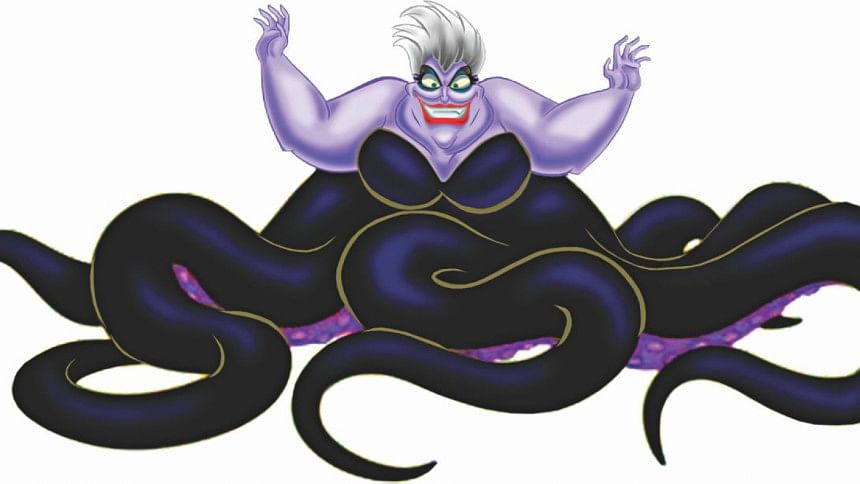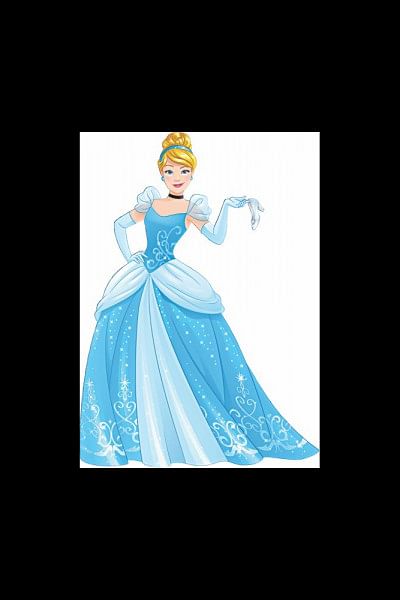Why Disney princesses are terrible role models

It's about 11 am and you've just woken up. Since you're on your summer vacation, and school is closed, your mom doesn't wake you up too early. You drag yourself out of bed to sit at the dining table where you take small bites set out for you. You suddenly realise you are now free to watch as much TV as you can take in before it's time for your mom's soap opera. You run and grab the remote to both your TV and DVD player before any of your other siblings could take control, only to sit with your box of discs to find the perfect fairytale to play. So, you choose one after a good twenty minutes of struggle and settle down on the couch and gawk at the beautiful Disney princess out on her adventure with her hair flowing perfectly beside her even when she clearly hasn't washed it for days.
We all have our own memories of watching the magical world of Disney with its stereotypes and clichés. Sure they've been a huge part of our childhood, but we have to admit that our beloved Disney princesses have portrayed wrong ideas about some crucial issues. While this does not mean that we should condemn Disney movies and render them taboo, there are a few concerns which should be addressed correctly and be made clear to the children who shape their views on important topics based on such characters. Here are a few reasons why it's safe to say Disney princesses aren't the best role models.
THE UNHEALTHY BODY IMAGES AND OVERALL VAINNESS
Princesses with their long necks, slim waists and narrow wrists create an image of the perfect body type in young girls from a very young age. Not only do a lot of these movies completely throw out the idea of body positivity but they also set a wrong impression about the importance of beauty. More often than not, physical imperfections on villains have been highlighted to such an extent that children watching it would grow up believing that there is a deep correlation between negative personality traits and bodily flaws. Starting from Ursula from The Little Mermaid to Anastasia and Drizella from Cinderella, it has always been portrayed that characters that do not conform to society's idea of beautiful must be villainous. Furthermore, the focus on beauty in some of the movies often act as a push for young girls to concentrate more about their looks, including scenes where certain princesses spend a great deal of their time gazing at themselves in the mirror fixing their already perfect hair.
WRONG DEPICTION OF MEN'S ROLES IN A WOMAN'S LIFE
Starting with the obsession with finding the apparent 'true love' to the expectation that a boy will swoop in and save the day, Disney's got it all wrong with roles girls should expect men to play in their lives. Such depictions impose a wrong idea with impressionable girls that they need to be damsels in distress and wait for a knight in shining armour to fight the monster instead of putting on the armour themselves and fight it off. Not only that, they go far enough to show that women require men to achieve good things, for example, Jasmine was set to marry a suitor at the age of 16 if she were to make queen, as if her own merit and capabilities had no part to play whatsoever. One of the worst is the representation of the idea that a man will come into the princess' life and all her hardships and problems will just vanish.

DEPENDENCE ON EXTREMELY UNREALISTIC AND NAIVE OPTIONS TO SAVE THEM
If not waiting for a prince to come save her with his boyish good looks, these princesses will literally fall back on anything that is absolutely absurd. They would rather cry out for help in the middle of a forest and sink to ground bawling their eyes out, leaving their fate to the obviously unreliable scope for magic and talking animals that pull unimaginable stunts, instead of actually making sound decisions and helping themselves. The list probably goes on, but this should be enough to explain why this isn't the greatest takeaway for children who are more prone to replicating the observations they make through such movies.
IGNORING SOUND ADVICE AT EVERY POSSIBLE STEP
These princesses undoubtedly have issues they need to face but a lot of it could actually be avoided if they had listened to advice given to them earlier. While trusting one's instinct is essential, these girls just overdo it with the ignorance. When they aren't avoiding a rational counsel, they will probably go around preaching others with their perspective of righteousness, completely ignoring other points of view. Not only is that rude, but it also makes younger generations think it is alright to disregard others' perspectives. Apart from that, most of the expeditions these princesses go on at the age of 16-20 are not exactly the most sensible of choices, and in a way glorifies impulsive and reckless behaviour.
SUPPORT OF DETRIMENTAL STEREOTYPES FOR WOMEN
This might be one of the most crucial hazards of said movies. The set of roles and behaviour portrayed by the characters are way too rigid, sending the message that girls need to behave in a certain way to fit in to the society and be rendered acceptable. It also imposes the impression of having to always be attractive and behave in a certain way. Growing up with such constricted and definite roles, young girls could feel pressurised to behave in a particular to be 'feminine' enough.
While there are a few characters such as that of Elsa from Frozen or Belle from Beauty and the Beast that must be appreciated, Disney still has a long way to go to allow girls to grow up more comfortably and without feeling pressured to shape themselves in a certain way.
Syeda Afrin Tarannum would choose 'The Script' over 'G-Eazy' any day. Ignore her taste in music on [email protected]





Comments